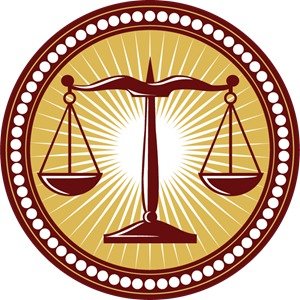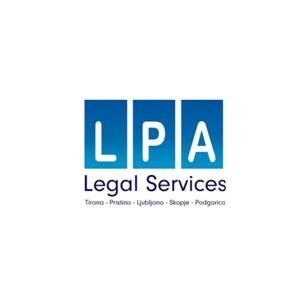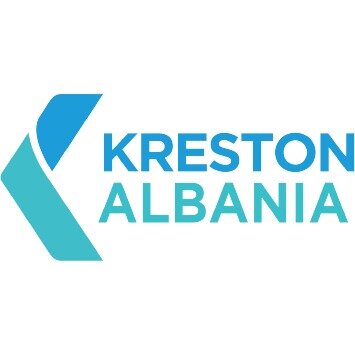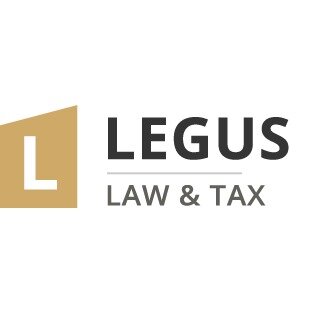Best Bankruptcy Lawyers in Albania
Share your needs with us, get contacted by law firms.
Free. Takes 2 min.
Or refine your search by selecting a city:
List of the best lawyers in Albania
About Bankruptcy Law in Albania
Bankruptcy law in Albania is designed to handle the financial affairs of individuals or businesses that cannot meet their debt obligations. The law provides a legal process to help debtors restructure or settle their debts under court supervision, ensuring fair treatment for creditors while offering an opportunity for financial rehabilitation to the debtor. The primary legislation governing bankruptcy in Albania includes the Bankruptcy Law of 2016 and subsequent regulations that outline procedures for declaring bankruptcy, restructuring, and liquidating assets.
Why You May Need a Lawyer
Engaging a bankruptcy lawyer in Albania can be essential in various situations. If you're a business owner facing financial distress, an attorney can help navigate complex bankruptcy proceedings and negotiate with creditors. Individuals overwhelmed by personal debt may also benefit from legal guidance to evaluate the possibility of filing for bankruptcy and understanding the consequences. Additionally, lawyers can assist in preventing property seizures and ensuring compliance with legal requirements throughout the bankruptcy process.
Local Laws Overview
Albanian bankruptcy law primarily focuses on either restructuring or liquidating the debtor's assets through court proceedings. Significant legal provisions include:
- The possibility of restructuring, allowing debtors to maintain control of their operations while repaying obligations under a court-approved plan.
- Liquidation procedures where a debtor's assets are sold to satisfy debts, usually resulting in the dissolution of a business.
- The establishment of a "creditor committee" to represent creditor interests and negotiate settlement terms.
- Requirements for debtors to file a petition for bankruptcy with the court, along with supporting financial documents.
- The role of a bankruptcy trustee to oversee asset management and ensure compliance with the proceedings.
Frequently Asked Questions
What is the difference between restructuring and liquidation in Albanian bankruptcy law?
Restructuring allows a debtor to reorganize their debts and continue operations under court supervision, while liquidation involves selling off assets to pay creditors, often resulting in the business being closed.
Who can file for bankruptcy in Albania?
Both individuals and businesses facing insolvency can file for bankruptcy in Albania. However, specific requirements and procedures may vary depending on the debtor's situation.
How does the bankruptcy process start in Albania?
The process begins when a debtor submits a bankruptcy petition to the court. Creditors may also initiate proceedings if they believe the debtor is insolvent.
What role does a bankruptcy trustee play?
The trustee oversees the bankruptcy proceedings, manages the debtor's assets, and ensures all legal processes are followed, acting as an intermediary between the court, creditors, and the debtor.
Can I retain any assets if I declare bankruptcy?
Depending on the specific circumstances and insolvency proceedings, debtors may retain some essential personal assets. The law aims to balance debt repayment with the debtor's ability to maintain a basic standard of living or continue business operations.
How long does a bankruptcy process typically take?
The duration can vary significantly depending on the complexity of the case, the debtor's cooperation, and whether the process involves restructuring or liquidation. It may range from several months to a few years.
What are the consequences of filing for bankruptcy?
Filing for bankruptcy can affect your credit score, ability to obtain future financing, and may result in the loss of assets. It's crucial to weigh these consequences against the benefits of resolving overwhelming debt.
Can bankruptcy filings be contested?
Yes, either by creditors or the debtor. Creditors may challenge the debtor's eligibility or the proposed repayment plan, while the debtor might dispute claims made by creditors.
How does bankruptcy affect employees of a bankrupt company?
Employees may face job loss or salary reductions. Albanian law provides mechanisms to address employee claims during the bankruptcy process, prioritizing salary arrears and benefits.
Can I legally avoid filing for bankruptcy if I'm insolvent?
Debtors may explore alternative solutions such as debt restructuring outside of court, negotiating settlements with creditors, or seeking financial counseling before opting for bankruptcy.
Additional Resources
The following resources and organizations can provide further assistance or information regarding bankruptcy in Albania:
- The Ministry of Justice - Oversees the legal framework and can provide guidance on legal procedures related to bankruptcy.
- The Albanian Bankruptcy Supervisory Agency - Offers detailed guidance on carrying out bankruptcy procedures.
- Chambers of Commerce and Industry - May assist in business-related bankruptcy inquiries.
- Legal aid organizations - Provide free or low-cost legal services to individuals unable to afford private legal consultation.
Next Steps
If you need legal assistance related to bankruptcy in Albania, consider taking the following actions:
- Consult with a specialized bankruptcy lawyer to discuss your situation and get personalized advice.
- Gather all financial documents, such as bank statements, asset lists, and debt records, to provide a comprehensive overview of your financial status.
- Explore initial consultations, which many lawyers offer free or at a lower cost to assess your case thoroughly.
- Review any advice or steps suggested by legal professionals, considering both short-term and long-term implications.
Lawzana helps you find the best lawyers and law firms in Albania through a curated and pre-screened list of qualified legal professionals. Our platform offers rankings and detailed profiles of attorneys and law firms, allowing you to compare based on practice areas, including Bankruptcy, experience, and client feedback.
Each profile includes a description of the firm's areas of practice, client reviews, team members and partners, year of establishment, spoken languages, office locations, contact information, social media presence, and any published articles or resources. Most firms on our platform speak English and are experienced in both local and international legal matters.
Get a quote from top-rated law firms in Albania — quickly, securely, and without unnecessary hassle.
Disclaimer:
The information provided on this page is for general informational purposes only and does not constitute legal advice. While we strive to ensure the accuracy and relevance of the content, legal information may change over time, and interpretations of the law can vary. You should always consult with a qualified legal professional for advice specific to your situation.
We disclaim all liability for actions taken or not taken based on the content of this page. If you believe any information is incorrect or outdated, please contact us, and we will review and update it where appropriate.
Browse bankruptcy law firms by city in Albania
Refine your search by selecting a city.

















